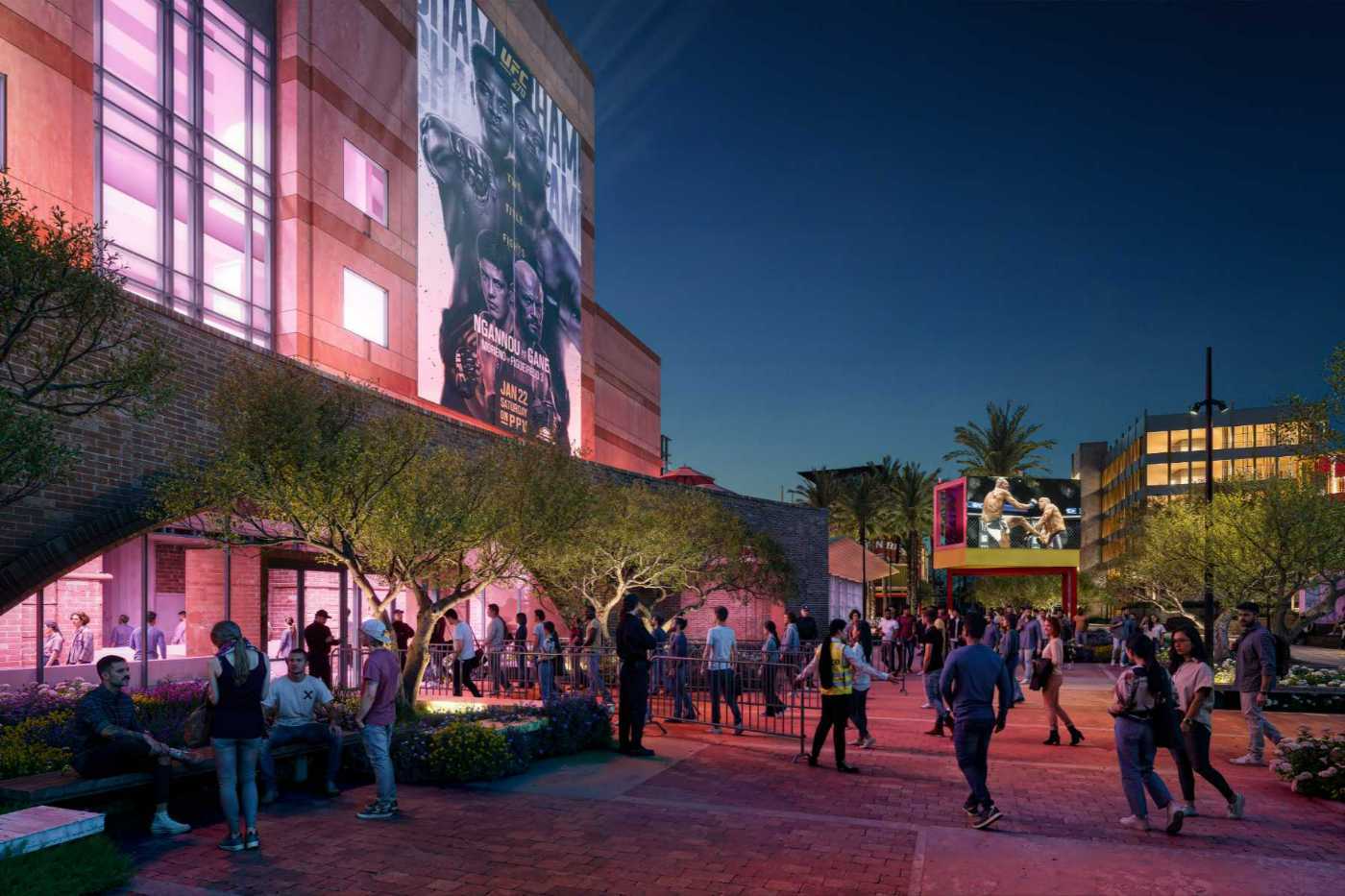Developers, cities and venue operators are increasingly looking to midsize concert spaces to fill the gap between intimate clubs and cavernous arenas, a trend that’s helping to anchor mixed-use developments across the nation.
In Washington, D.C., The Anthem, a 6,000-seat concert hall at The Wharf development, has drawn tourists and locals to sold-out shows from artists ranging from R&B singer Kehlani and rising country star Megan Moroney. In Boston, the 5,007-seat MGM Music Hall at Fenway has pulled in performers from hip-hop hitmaker T-Pain to indie folk favorite Lord Huron. And in Chicago, The Salt Shed’s 3,600-seat indoor hall has welcomed packed crowds since opening two years ago.
In the latest sign of confidence for midsize venues, Live Nation is adding a 6,000-seat theater to downtown Salt Lake City. The Beverly Hills, California-based company is the largest operator of concert venues, with several other such projects underway across the country.

“Six thousand is a new sweet spot in music,” Live Nation CEO Michael Rapino said at a news conference announcing the Utah project. “Lots of artists can play arenas. Some can play 200 seats, but there’s a big middle ground. They can’t quite solo the arena at 15,000, so they want to find that smaller venue.”
With stadium tours increasingly dominated by top-tier acts such as Taylor Swift, Coldplay and The Jonas Brothers, midsize rooms — venues with capacity for 3,000 to 6,000 people — offer promoters and developers a more reliable pipeline of bookings while creating steady traffic for nearby restaurants and hotels, according to Christopher Bonbright, an executive with Avison Young who helped broker the sale of the 3,300-seat Dolby Theater in Los Angeles last year.
“For fans, the midsize venue feels more personal and immersive, with a stronger connection to the artist as compared to a massive arena,” Bonbright told CoStar News. “For artists, this scale still supports ambitious productions while offering favorable touring economics.”
There are still some sour notes; Live Nation and others like it face headwinds in the form of high construction costs and pushback from concertgoers that are contending with climbing ticket prices, industry data shows.
Sports-anchored development
The push for midsize venues dovetails with broader mixed-use redevelopment strategies. Developers are increasingly adding live music halls alongside football and basketball arenas in large-scale mixed-use projects to extend activity beyond game days.

In Orange County, California, the 100-acre OCVibe will add a 5,700-seat music hall as part of new amenities to complement the existing Honda Center, a hockey stadium that can seat 18,000. Meanwhile, Iowa State University’s 94-acre CyTown entertainment district is set to include a new 3,000-seat outdoor music amphitheater near the school’s 62,000-seat Jack Trice Stadium.
In Salt Lake City, Live Nation is partnering with Smith Entertainment Group to develop the 6,000-capacity indoor theater that’s expected to host roughly 200 annual events.
The midsize venue adds to a $1.8 billion sports and entertainment district that’s underway in downtown Salt Lake City. Smith Entertainment Group is redeveloping a three-block stretch east of the Delta Center, where the venue will soon break ground.
Ryan Smith, Smith Entertainment Group chairman and CEO and owner of the NBA’s Utah Jazz, said the project will ensure that “thousands of top musical acts will not be flying over Salt Lake anymore but actually stopping, because they’ll have a venue suited to their needs.”
Venues hit the high notes
Live Nation plans to operate the venue, while Smith Entertainment Group — owner of the city’s 19,000-seat Delta Center — will serve as partner. Smith Entertainment Group in 2024 purchased the NHL’s Arizona Coyotes and moved them to Salt Lake City as the Utah Mammoths; the team began playing at the Delta Center in September.

The project marks the first purpose-built indoor music venue in Utah for Live Nation. The firm maintains exclusive booking rights or an ownership stake in nearly 400 venues and 137 festivals around the globe.
“Live is on fire. Venues have become the new movie theater,” Rapino said. “Every time someone’s building a new development, they want to have a live venue … but it’s very rare that you can build a 6,000-seat venue downtown.”
The top 100 music tours posted worldwide gross revenue of $9.5 billion in 2024, a 3.6% increase from 2023, the most recent data available. At the same time, average ticket prices for these tours reached nearly $136 in 2024, up sharply from $96 in 2019, stretching consumer budgets and testing affordability, according to industry tracker Pollstar.
It’s not the only project Live Nation has underway. The firm in May signed a long-term lease to manage a planned 5,300-seat music venue at CIM Group’s Centennial Yards project in downtown Atlanta. The $5 billion development is one of the largest mixed-use projects under construction in the nation.
Other operators are pursuing similar strategies. AEG Presents, Live Nation’s closest competitor, recently opened a 4,500-seat concert hall at Nashville Yards in Tennessee; it recently broke ground on a midsize venue in Portland, Oregon; and it is preparing to begin construction on a 4,000‑capacity venue slated to open in 2027 at Austin’s River Park in Texas.


